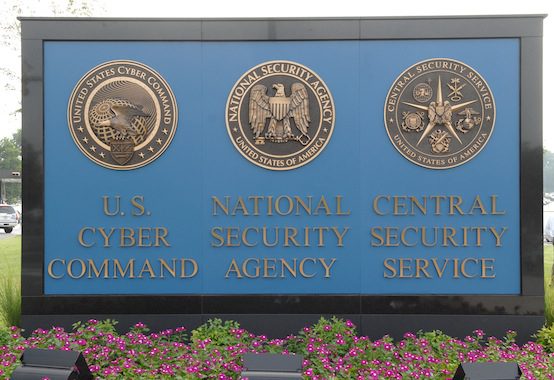How the UAE is Poaching Our Intelligence Operatives, Legally
With Washington's blessing, the monarchy hired our best and brightest to wage cyber warfare, inevitably targeting Americans.

Fort Meade
If a foreign country is recruiting our spies, and these recruits ultimately spy on Americans, can they be considered traitors?
Unfortunately that isn’t a rhetorical question. Recent reporting has revealed that a number of former NSA hackers were hired by the United Arab Emirates to conduct surveillance and cyber attacks on their so-called enemies, domestic and foreign. While the United States is considered an ally and the cyber operations were largely blessed by the Washington, Americans were inevitably caught up in the dragnet.
On January 30, Reuters published two stories (here and here) reporting that in 2014, the United Arab Emirates had put together a clandestine team of former U.S. intelligence operatives called “Project Raven.” According to Lori Stroud, a former agent of Project Raven who went on the record with her story, the group used methods gleaned from a decade or more in the American intel community (as well as their state of the art cyber tools) to help the UAE gather intelligence and engage in cyber warfare against other governments—including top government officials—militants, and human rights activists critical of the UAE and considered “national security threats” to the monarchy.
Stroud said she had joined “Project Raven” only two weeks after leaving the NSA in 2014.
U.S. national security lawyers told Reuters that the laws governing what American intelligence contractors can do overseas are “murky.” One thing that wasn’t ambiguous, however, was that the agreement between the State Department (with the NSA’s nod) and the UAE contractor that made Project Raven possible forbade the outfit from targeting U.S. citizens and companies. Yet the increasingly broad data surveillance operations were scooping up Americans anyway. Stroud said they did their best to flag and delete those targets, but as their work became increasingly dominated by their UAE handlers, there was no way to tell whether American interests were being completely protected.
Why the U.S. government would allow our agents to do this in the first place is difficult to understand.
The idea that American taxpayers pay for their best and brightest to be trained to work as assets for the CIA, NSA, FBI, or any other U.S. intelligence agency, and then be scooped up within weeks of leaving to serve as tools for a foreign government is absurd. But apparently it is legal.
If our government cannot control assets from working as contractors wherever they like, one would think there should be some regulation that requires 1) ex-spies who engage in private surveillance activities for other countries to disclose that work, including whether their new employment could compromise the privacy and security of American interests and its citizens, and 2) a prohibition on sharing proprietary tools of the craft with foreign governments and/or entities, especially in countries accused of human rights violations or engaged in current violent conflict(like the UAE).
The metadata involving American citizens currently collected by our very own intelligence services raises enough concerns. That the UAE was engaging in operations that ultimately targeted Americans, purposefully or not, should be immediately investigated. Every civil libertarian should be up in arms over this.
The Russian collusion investigation has now raised plenty of concerns of our own law enforcement and intelligence operations potentially being politicized for partisan political reasons. While we are still in the middle of this fiasco, hopefully some serious and concrete reforms will come from what is ultimately learned.
At the very least, we should not make it any easier to spy on our own citizens than it already is. Simple policies can be put into place that address these immediate concerns and our intelligence services should remain ever vigilant. The irony here, that American taxpayer-trained spies, specialists and hackers are being allowed to sell our funded expertise to any foreign entity—however “friendly”—with impunity is beyond preposterous. It’s dangerous, and will no doubt come back to haunt us when we least expect it.
Saul Anuzis is a Michigan-based political consultant and former chairman of the Michigan Republican Party.
https://www.theamericanconservative.com/articles/how-the-uae-is-poaching-our-intelligence-operatives-legally/

0 Comments:
Post a Comment
Subscribe to Post Comments [Atom]
<< Home